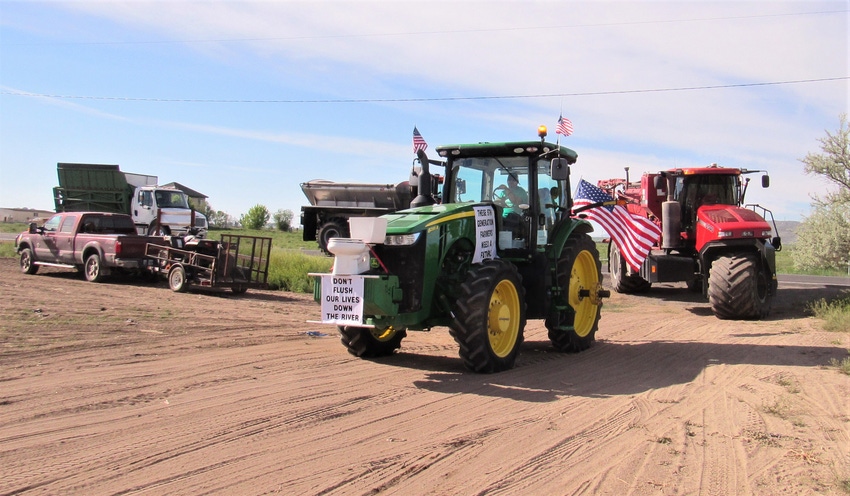
The U.S. Supreme Court this week declined to take up a case in which Klamath Basin farmers whose water was famously shut off in 2001 were seeking compensation from the federal government.
After nearly two decades of legal proceedings, an appeals court ruled that since the region’s Native American tribes have senior water rights, the irrigators in the basin that straddles the California-Oregon state line couldn’t claim the water was property that had been taken, Oregon Public Broadcasting explained.
The Klamath Water Users Association said in a statement that they were disappointed, but that their focus now is to make sure irrigators get enough water in the future, OPB reported.
The basin became Ground Zero for water fights in 2001, when biological opinions on endangered suckers and threatened coho salmon led the Bureau of Reclamation to abruptly shut off irrigation water to about 1,200 farms.
The so-called "bucket brigade" protests that year drew some 18,000 participants from throughout the West and prompted then-President George W. Bush's administration to boost deliveries to growers the following year, which environmentalists blamed for a subsequent die-off of about 70,000 salmon.
After a monumental effort to implement a water-sharing agreement in the basin failed, new protests erupted this year over a Bureau of Reclamation plan to further slash water deliveries to basin farmers this summer.
The bureau in May signaled plans to cut its allocation from 140,000 acre-feet to 80,000 but later backpedaled after some 2,000 people participated in a heavy equipment convoy through the basin on May 29 to demand more water. Bureau officials said May rains enabled their decision.
Drought conditions prompted the 140,000 acre-foot allocation, which is still only 40 percent of the water the project gets from Upper Klamath Lake in a normal year.
About the Author(s)
You May Also Like






